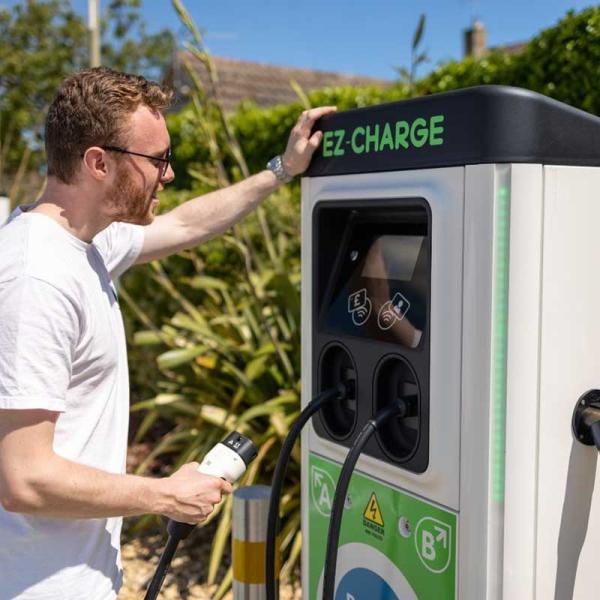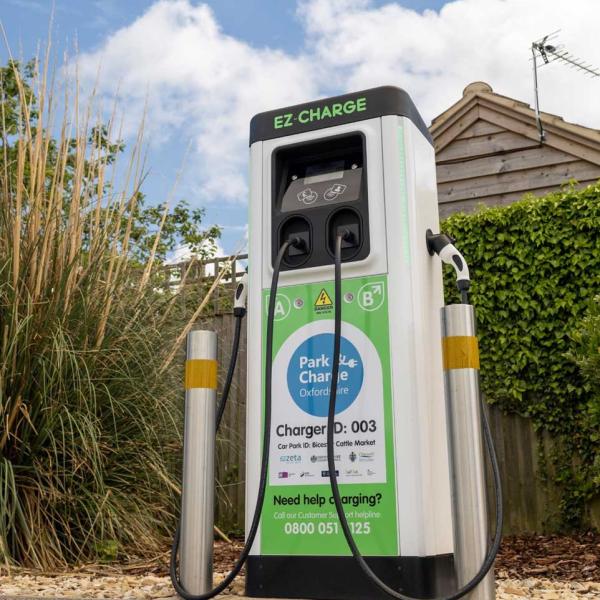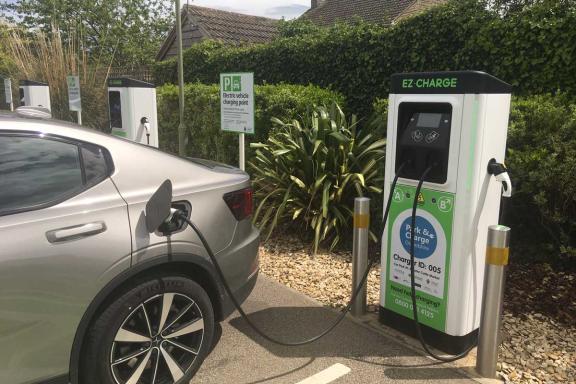Mind Foundry: developing AI tools for EV chargepoint location decision making
Working with an Oxford University spin-out company to develop innovative Artificial Intelligence (AI) based tools to plan electric vehicle (EV) chargepoint networks.
The challenge
Highways authorities such as Oxfordshire County Council play a key strategic role in planning how best to meet the demand for public EV charging points from a range of stakeholders, such as:
- residents
- fleets
- commuters
Deciding on the most appropriate locations for EV infrastructure involves analysing and considering a wide range of datasets and factors, for example:
- the location of households without off-street parking
- the location of existing EV charging facilities
- the demographics of the local area
In 2020, Oxfordshire County Council was one of the first councils to develop an EV charging infrastructure strategy. The county council started using mapping tools to inform this kind of decision-making. Of the few strategic EV charger mapping tools available on the market at the time, none could reliably give Oxfordshire County Council the information and analytics they were looking for. Most could not process data quickly, and none were particularly user-friendly, with most reliant on users being confident with (and having access to) GIS tools.
Overall, this meant that the site analysis process was likely to be awkward and time-consuming for councils and would often provide fairly basic results. A much better solution was needed to aid councils in strategic decision-making around public EV charging, something for which all Tier 1 local authorities now have a responsibility.


The solution
In 2021, Oxfordshire County Council were part of a consortium that successfully bid for £285,000 in grant funding from Innovate UK to develop a new AI-based tool for EV chargepoint site location. Mind Foundry, a tech spin-out company from the University of Oxford, led the project. They chose to work with our team due to our:
- wealth of experience in EV strategy and project delivery
- valuable insights from delivering major EV infrastructure projects
- appetite for experimenting with and helping to develop hi-tech solutions to real-world problems
The project started with visioning exercises and in-depth interviews to develop a detailed understanding of councils' needs and priorities when planning EV charging roll-outs, as well as our experiences with other tools and in-house analysis. We acted as the informed client and critical friend and then went on to rigorously test the developing AI tools and help Mind Foundry continue to improve its functionality and user experience.
The results
The resulting tool that Mind Foundry developed responded to Oxfordshire County Council's needs and provided a user-friendly interface that worked for non-experts and non-technical audiences. Therefore, the tool was appropriate for wider local authority use in the future.

Oxfordshire County Council used the new tool to map out and assess sites for an application for the Office for Zero Emissions Vehicles (OZEV) Local EV Infrastructure (LEVI) grant pilot scheme. The county council also used the tool to assess potential sites for EV charging hubs put forward by town and parish councils.
Mind Foundry engaged with OZEV to make this tool more widely and commercially available. Although this didn't ultimately happen, the project's work helped to shape the expectations of government and local authorities regarding AI-supported mapping tools. The tool demonstrated what was achievable, which has now become the norm in systems available today.